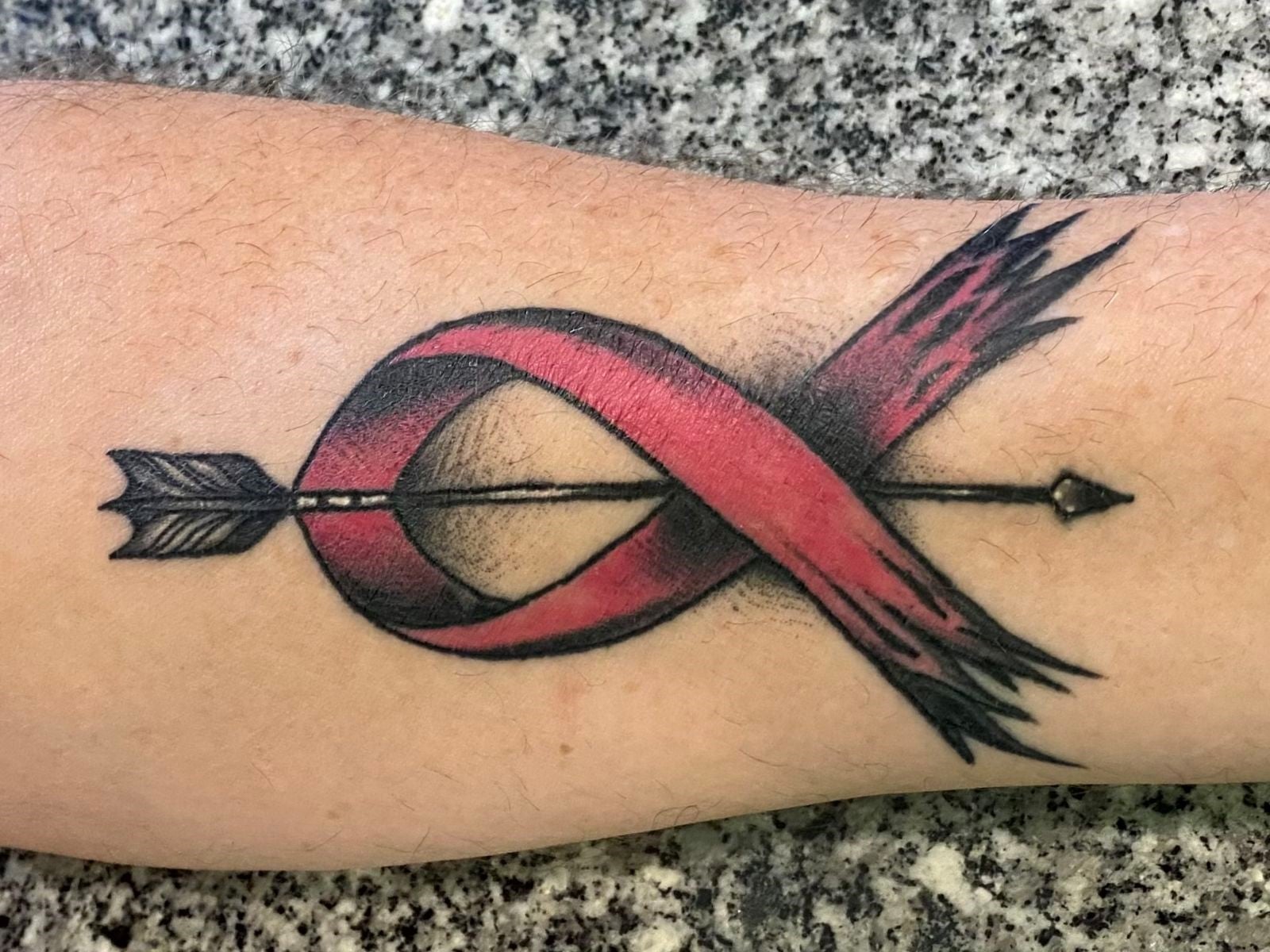One morning in the fall of 2021, Linda Demarr noticed blood on her husband Scott’s side of the bedsheet.
Dumbfounded, Scott DeMarr, 62, determined the stain was near his chest area, so he grabbed his right breast and found a clear discharge followed by bloody discharge from his nipple.
“At the time, I thought nothing of it,” he said. “I put an antibiotic on it and forgot all about it.”
After a couple of weeks, Linda asked Scott how he was doing, so he touched his breast again and found more discharge. That’s when Linda said, “That’s not right. You need to have that looked at.”
So, Scott went to the family doctor, who recommended a mammogram. Unfamiliar with that procedure and knowing his wife was soon going for her mammogram, Scott asked the breast center staff if they could “have a couple’s suite.” That’s when he learned that mammograms were done individually!
The Whirlwind
“I went for the mammogram, and I found it to be uncomfortable but not painful,” he recalled. The painful part was hearing they found a mass.
“The staff at the Breast Center in Norton Shores were very sensitive to my situation. They were fantastic. They placed a marker at the location of the mass and did a biopsy right there,” he said. “I felt like a unicorn.”
An outdoorsman, Scott "hunts, fishes and enjoys golf.” He joked about how he considered himself indestructible. A man of faith, he also believed the biopsy results would come back benign. After all, no male in his family had experienced breast cancer.
The diagnosis of cancer was difficult to hear. “My stomach dropped,” he said. “This couldn’t be real. It can’t be the big ‘C.’ Men don’t get breast cancer,” he thought.
Scott’s tumor was directly beneath his nipple and was at Stage 1 with no metastasis. While he would undergo a mastectomy, he would not need radiation or chemotherapy.
His request delayed his surgery so he could care for his wife, who was already scheduled for a major surgery. Gregory Meyers, MD, performed Scott’s outpatient surgery on Feb. 24, 2022.
Finding Support
Recognizing his unique situation, Scott asked his nurse navigator to see if he could speak with another man with breast cancer before his surgery. Still, she was unable to identify another patient.
So, Scott got on the internet looking for a support group “for men only,” and ultimately linked up with a Men’s Breast Cancer group in the United Kingdom. To his surprise, it was actually a group of women who had breast cancer and wanted to support men with the disease. Scott was accepted into the group and was the first man to join it.
Before his surgery, Scott had a lot of questions. “I spoke to the members of my support group and they were fantastic. I asked them the questions you have in your mind like: ‘Does it hurt? “How much does it hurt?’”
The Aftermath
Scott believes his case opened a lot of people’s eyes to the fact that the way men and women are treated and prepared for breast cancer treatment shouldn’t be different.
Following surgery, he had lymphedema, which he wasn’t expecting. He also went to physical therapy, just as any female patient would. Scott was also prescribed Tamoxifen, a hormone blocker. He found the weight gain and the mood swings from the Tamoxifen to be unbearable over time, so he stopped taking it.
“Overall, Trinity Health Muskegon was fantastic for me,” Scott said. “Based on my experience and that of others I know who have been treated at other health systems, Trinity Health Muskegon is as good if not better.”
The “Why?”
Scott’s faith never wavered, but he did have some personal conversations with God about the “Why?” He is a big believer in the purpose of why things happen.
“Right now, I think the reason why I got breast cancer is so I can be a spokesperson for men. There is a great need for guys with this diagnosis to understand what’s going on. That’s why I started a private Facebook support group For Men Who Have Breast Cancer,” he said.
“I’m not a tattoo guy, but I also got a tattoo, which has served as a great conversation starter. People see it and ask me about it. I bet I’ve had no less than 30 conversations about male breast cancer begin because of my tattoo.”
Scott admits that he has lingering concerns, such as whether the cancer will show up in the other breast. Genetic testing gave him peace of mind about not having passed a gene along to his children or grandchildren.
“Family is everything. My family is my priority.”
Tough as it has been, breast cancer has taught Scott a valuable lesson. “I used to think I was seven feet tall and bulletproof,” he said tongue in cheek. “Now I know I’m not, and I’m okay with that.”
If you have concerns with your breast health, talk with your primary care provider.
If you need a primary care provider, search here for one near you.





